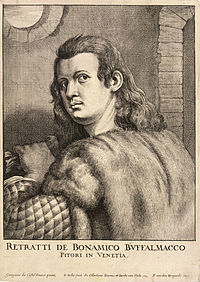The Decameron VIII: 'The Eighth Day'
As some of you may know, I currently live in Shanghai, which means that the setting of The Decameron has become beautifully relevant to me all of a sudden. In Boccaccio's collection of tales, seven young women and three young men have hidden themselves away behind a deserted villa's walls to sit out the Black Plague as it ravishes 14th century Italy. While the Corona virus isn't quite as horrifying as the Black Plague (at the moment at least), it has been enough for all of us to be put on extended leave. Hence, I will be spending the next ten days hidden away in my own apartment, desperate to amuse myself and to forget what's happening outside. My tiny apartment may not be a villa and I may be there on my own (+ cat), but it is the place where I will be joining Boccaccio's hideaways.
The Eighth DayOur cast:
Ladies: Men:
Pampinea Panfilo
Fiammetta Filostrato
Filomena Dioneo
Emilia
Lauretta
Neifile
Elissa
Today's queen is Lauretta and her chosen theme is tricks people play on each other.
The Tales
Neifile tells the first tale, in which a woman is tricked into revealing she requested and received money as part of an affair. Her honor is only slightly preserved. Panfilo's second tale follows, in which a priest first leaves his cloak as a pledge and then retrieves it through subterfuge. The third tale, told by Elissa, introduces Calandrino who is fooled into thinking he's found a magic invisibility stone. It is his wife who suffers when he realizes he hasn't. Emilia follows this up with a widow tricking an annoying rector and exposes him to the bishop. The fifth tale is Filostrato's and it involves pulling down breeches. Filomena tells the sixth tale, in which poor Calandrino is once again tricked by those who claim to be his friends. Pampinea tells a horrifying tale of escalating trickery in which a man almost freezes to death and a woman almost dies of sun exposure. The eighth tale is told by Fiammetta of two friends finding a way to maintain their friendship despite sleeping with each others' wives. Lauretta tells the penultimate tale in which the friends of the sixth tale trick another dumb man into wining and dining them through the occult. Dioneo is the last and sees large quantities of money being fought over by a fool in love and a cunning Sicilian woman.
There are a few tales from today that I want to look into in more detail. One of these is the first tale, told by Neifile. Gulfardo wants to sleep with Guasparruolo's wife, only she demands money so she can buy herself something nice. Enraged that she wouldn't do it for the pure pleasure of being with him, Gulfardo sets up a trap in which he borrows the money from her husband, gives it to her, and then, in the presence of both, tells the husband he repaid the loan and gave it to the wife. She has to then relinquish her hard-earned money, but just about gets away without being exposed. The tale shares the sentiment of those of the previous days in which affairs are fine, but getting paid for them is a crime. I find the morality behind that rather shady and it adds to the uncertainty of whether any of The Decameron can be interpreted as being a positive thing for women.
This is also the case with the seventh tale. Widows were apparently hot property in the Middle Ages, irresistible to men. This tale's widow has a lover but still enjoys making other men fall in love with her. She makes one such, a scholar, stand outside in the snow for a whole night, leaving him rather worse for wear. Once he recovers, he constructs a rather extreme revenge when she turns to him for help to regain the affections of her real lover. He has her standing naked on a tower in the midst of July for a whole day, beset by gadflies and getting progressively more burned. Despite her pleas, he refuses to show her mercy since he got none from her. She comes down looking like 'a burnt log' but manages to cover the whole affair up. The lesson is to never toy with a scholar if you're only a feeble-minded woman. Afterwards, the storytellers do agree he was rather harsh but can't deny that she kind of deserved it. It's the casual cruelty in some of these tales that makes the reading less fun. Although, of course, these tales are meant to amuse through their shock-value, the sheer excess of it is still a bit much for most modern readers.
 |
| Buffalmacco, the worst friend ever |
Fun fact:
In the sixth tale, Calandrino needs to find out who stole his pig. In order to do so, him and his "friends" set up what was apparently a very common Medieval lie detector test:
'So all you have to do is to bring them all together so that I can give them the bread and cheese test, and we'll soon see who's got it.'Those suspected of untruths would be fed a bread and cheese combo while a magic formula as recited. If they couldn't swallow the mixture, they were guilty. This is the same as the Anglo-Saxon law I was familiar with, corsned, Fun to see how these things made their way through the Middle Ages.
Set Up for the Ninth Day:
Lauretta relinquishes her title of queen to Emilia, telling her that her ruling should be as fair as her complexion is. In order to make sure no one gets overtired from their pastime, she sets no restrictions on their topic. They're free to tell whatever they please, so I'm actually curious to see what I shall receive tomorrow.




Comments
Post a Comment